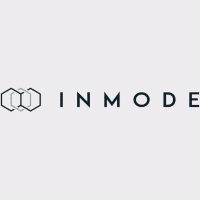
In the digital age, where consumers are bombarded with countless marketing messages, businesses are constantly striving to stand out and engage their target audience effectively. One key strategy that has emerged as a game-changer in the marketing landscape is customer relationship management (CRM). By leveraging CRM tools and techniques, businesses can create personalized experiences that resonate with individual customers, leading to increased brand loyalty and higher conversion rates. In this article, we will explore the power of personalization and delve into why CRM is essential for modern marketing success.
1. Understanding CRM: Building Stronger Customer Connections
CRM, short for Customer Relationship Management, is a multifaceted approach that enables businesses to manage and analyze customer interactions throughout their lifecycle. It involves capturing, organizing, and utilizing customer data to foster meaningful connections and deliver tailored experiences. By harnessing CRM, marketers gain valuable insights into customer behavior, preferences, and purchasing patterns, allowing them to develop targeted campaigns and personalized messaging.
2. Personalization: The Key to Winning Customer Hearts
In today’s crowded marketplace, generic marketing messages often fall flat. Customers crave personalized experiences that cater to their unique needs and preferences. This is where CRM comes into play, empowering businesses to create tailored content, offers, and recommendations that resonate with individual customers.
3. Enhanced Customer Engagement and Loyalty
When customers feel understood and valued, they are more likely to engage with a brand and remain loyal over time. CRM enables businesses to go beyond superficial interactions and build deeper connections by offering relevant and timely communications. By analyzing customer data, marketers can identify opportunities to engage customers at every touchpoint, delivering personalized messages that inspire action and foster loyalty.
4. Increased Conversion Rates
Personalization has a direct impact on conversion rates. According to studies, personalized emails have significantly higher open and click-through rates compared to generic mass emails. By leveraging CRM data, marketers can segment their audience and tailor messages based on customer preferences, increasing the likelihood of conversion. Furthermore, personalized product recommendations can drive upsells and cross-sells, further boosting revenue.
5. Customer Retention and Advocacy
Acquiring new customers is important, but retaining existing ones is equally crucial. CRM plays a vital role in customer retention by helping businesses understand their customers’ needs and preferences. By nurturing customer relationships through personalized interactions, businesses can increase customer satisfaction, reduce churn rates, and encourage advocacy. Satisfied customers are more likely to refer friends and family to a brand, becoming valuable ambassadors in the process.
6. Data-Driven Decision Making
In the era of big data, businesses have access to an abundance of customer information. However, without a robust CRM system, this data remains untapped potential. CRM allows marketers to analyze customer data and derive actionable insights that drive informed decision making. From identifying emerging trends to optimizing marketing campaigns, CRM empowers businesses to make data-driven choices that lead to better outcomes.
7. Streamlining Sales and Marketing Processes
CRM not only benefits marketers but also sales teams. By integrating CRM with sales processes, businesses can streamline lead generation, customer tracking, and deal management. Sales representatives can access customer data, track interactions, and gain a comprehensive view of each prospect, enabling more targeted and personalized sales efforts. This integration enhances collaboration between sales and marketing, fostering alignment and driving revenue growth.
Conclusion
In the fast-paced world of modern marketing, personalization has emerged as a powerful tool for capturing and retaining customers. CRM acts as the driving force behind effective personalization, enabling businesses to unlock the full potential of their customer relationships. By harnessing the power of CRM, marketers can deliver personalized experiences, enhance customer engagement and loyalty, increase conversion rates, and drive revenue growth. In an era where customers expect tailored interactions, businesses that
In an era where customers expect tailored interactions, businesses that prioritize CRM gain a competitive edge and establish meaningful connections that resonate with their audience. By leveraging CRM data, marketers can craft personalized campaigns, offers, and experiences that cut through the noise and leave a lasting impact.
By understanding the importance of CRM in modern marketing, businesses can unlock several key benefits. Firstly, personalization enables businesses to deliver highly targeted and relevant messages to their audience. By analyzing customer data, marketers can segment their customer base and create personalized content that speaks directly to individual needs and interests. This level of personalization not only increases the chances of engagement but also establishes a sense of trust and credibility with customers.
Additionally, CRM allows for improved customer engagement and loyalty. By tracking customer interactions and preferences, businesses can anticipate customer needs and deliver timely and personalized communications. Whether it’s sending a personalized email on a customer’s birthday or offering tailored recommendations based on their past purchases, these personalized touchpoints create a sense of value and appreciation, fostering long-term loyalty.
Furthermore, personalization through CRM has a direct impact on conversion rates. By tailoring marketing messages and offers to individual customers, businesses can increase the likelihood of conversion. Customers are more likely to respond positively to messages that are relevant to their interests and needs, leading to higher click-through rates and ultimately more conversions. This not only boosts sales but also enhances the overall return on investment (ROI) of marketing efforts.
Another significant advantage of CRM in modern marketing is its role in customer retention and advocacy. By nurturing customer relationships through personalized experiences, businesses can create brand advocates who are more likely to refer others and promote the brand organically. Satisfied customers who feel valued and understood are more likely to become loyal advocates who actively engage with the brand and recommend it to others. This word-of-mouth marketing can be a powerful driver of growth and customer acquisition.
Moreover, CRM enables businesses to make informed, data-driven decisions. By analyzing customer data and identifying patterns and trends, marketers can gain valuable insights into customer behavior and preferences. These insights can inform strategic decisions, such as product development, pricing strategies, and marketing campaign optimizations. With a solid understanding of their customer base, businesses can allocate resources more effectively and achieve better results.
Lastly, CRM integration streamlines sales and marketing processes, fostering collaboration and alignment between teams. By having a centralized system that tracks customer interactions, sales representatives can access valuable information and tailor their sales efforts to individual prospects. This integration not only improves efficiency but also enhances the overall customer experience, as sales and marketing teams work together to deliver consistent and personalized messaging across touchpoints.
In conclusion, the power of personalization in modern marketing cannot be underestimated, and CRM serves as the backbone of this strategy. By harnessing the capabilities of CRM, businesses can unlock the full potential of their customer relationships and create tailored experiences that drive engagement, loyalty, and conversions. In a crowded digital landscape, where customers are seeking personalized interactions, businesses that invest in CRM gain a competitive advantage and establish meaningful connections that elevate their brand above the competition.




























